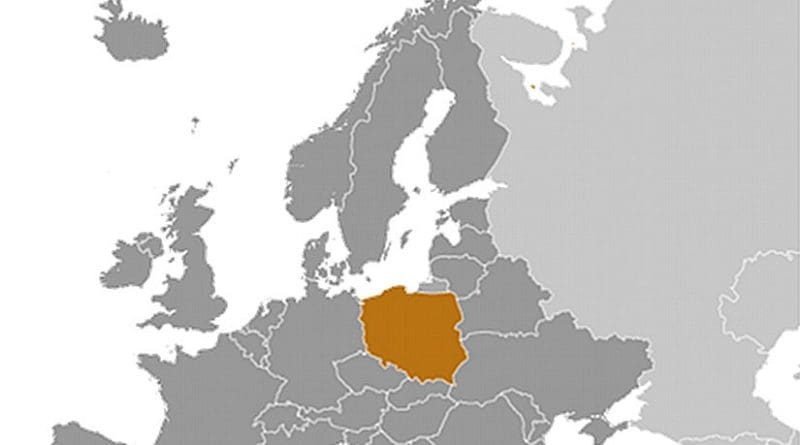EU Seeks Information As Chinese Espionage Scandal Hits Poland
By EurActiv
By Alexandra Brzozowski, Jorge Valero and Samuel Stolton
(EurActiv) — The European Commission will seek information from Poland after national authorities arrested this week a Chinese Huawei employee and a Polish national over espionage allegations.
The arrests came amid growing concerns shared by EU institutions and governments across the world about the activities of Huawei on their territory.
Poland’s domestic counterintelligence agency (ABW) arrested a Huawei employee, who worked for the Chinese government in the past, and a former Polish agent of the internal security agency on Tuesday (8 January).
The detainees were charged with Article 130 paragraph 1 of espionage against the Republic of Poland. The ABW materials show that they both acted for the benefit of the Chinese special services. The suspect is being threatened with up to 10 years in prison.
“We will be in touch with Polish authorities for further information”, said spokeswoman Maja Kocijancic.
National cases of cybersecurity are primarily a matter for member states and it is in their hands to share the information or warn other national authorities.
But EU officials explained that given the importance of cybersecurity as a threat, which is growing “exponentially”, and past concerns related to Huwaei, the Commission decided to get involved following internal discussions on Friday morning.
Another senior Huawei employee, Vice-President Meng Wanzhou, who is the daughter of the founder of the company, was also arrested in Canada last month. China reacted by detaining thirteen Canadian nationals in its territory.
The Commission spokesperson did not want to respond on whether the EU executive was concerned about the possibility of Polish or EU nationals being arrested in China.
Last month, the EU condemned the detention of the Canadian nationals Michael Kovrig and Michael Spavor.
Polish espionage scandal
The Chinese national arrested is Weijing W., who according to Polish authorities also used the names Stanisław, Staszek, and was Huawei’s sales director in Poland. According to information reported by Polish television TVP Info, he is a graduate of the Peking University of Foreign Studies, which is considered to be a breeding ground for the Chinese diplomacy and intelligence service officials
Previously, he had an official position as attaché at the consulate of China in the port city of Gdansk. According to information from social media, he has been working in Poland since 2006.
The Polish national, Piotr D., was a former high-ranking officer of the Internal Security Agency until 2011. He was the deputy head of the Department of Teleinformatic Security and adviser to the then head of this special service, General Krzysztof Bondaryk.
His departure was associated with the so-called infoafera – a case related to corruption in government IT tenders. However, no charges have been raised against him.
He had access to key information, including the functioning of SŁR, the Polish Government Communication Network which essentially allows secret transmission of information to high-ranking state officials. According to national media reports, after his departure from the agency, he was involved in IT security at the Military University of Technology and the Office of Electronic Communications and Orange.
“Both men carried out espionage activities against Poland. On January 8, they were detained, the Internal Security Agency carried out procedural acts, and searches were carried out in many places related to their activities,” deputy minister of the special services coordinator Maciej Wąsik told Polsat News.
According to Wąsik, the operation is seen as a success for the ABW. “The case has been conducted for a long time and carefully,” he told Polish press agency PAP.
Last Tuesday (8 January), ABW counterintelligence officers entered the homes of both suspects and secured documents and electronic data at the premises of Huawei Poland, the Office of Electronic Communications and Orange Poland.
Due to the fact that the Huawei sales director is not protected by diplomatic immunity, he will remain in detention for at least three months, as the Polish detainee.
The Chinese foreign ministry said it was “greatly concerned” by the reports, and urged Poland to handle the case “justly.”
“We are aware of the situation, and we are looking into it. We have no comment for the time being,” Huawei said in a statement.
“Huawei complies with all applicable laws and regulations in the countries where it operates, and we require every employee to abide by the laws and regulations in the countries where they are based,” it added.
The case broke as a number of countries are limiting Huawei’s activities in their territory as they fear it would give access to Chinese authorities to critical information and networks. The US, Australia, New Zealand, Japan and Norway are among them.
Huawei is one of the ‘tech’ champions in China, and one of the more popular Chinese companies abroad.
It is the leading telecommunications infrastructure company in the world and its smartphones are second only to Samsung in terms of global sales.
Norway came out against Huawei on Wednesday (9 December), as Justice Minister Tor Mikkel Wara disclosed that the country is considering excluding the Chinese firm from investing in the next generation of mobile communications (5G).
Wara said that Norway shares “the same concerns as the United States and Britain” with regards to espionage projects contracted on “private and state actors in Norway.”
Norway’s comments come at a time in the country is seeking to stamp out vulnerabilities in its telecoms networks. State-controlled telecoms firm Telenor signed a partnership with Huawei in 2009, that gave the Chinese company a foundation to expand further on the continent.
Telenor is currently testing 5G networks with the use of Chinese equipment supplied by Huawei, but with Friday’s arrests, pressure will only mount on the firm, who sought to substantiate their presence on the continent with the establishment of an EU headquarters in Brussels in 2018.

